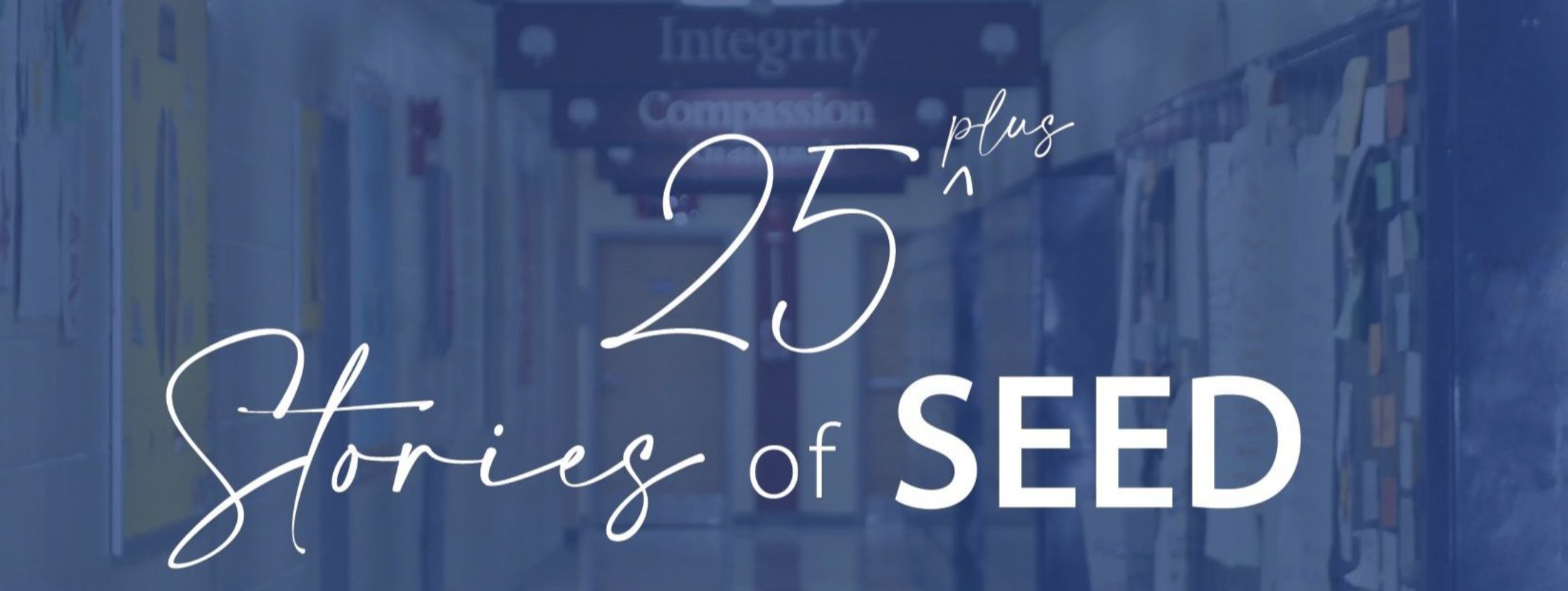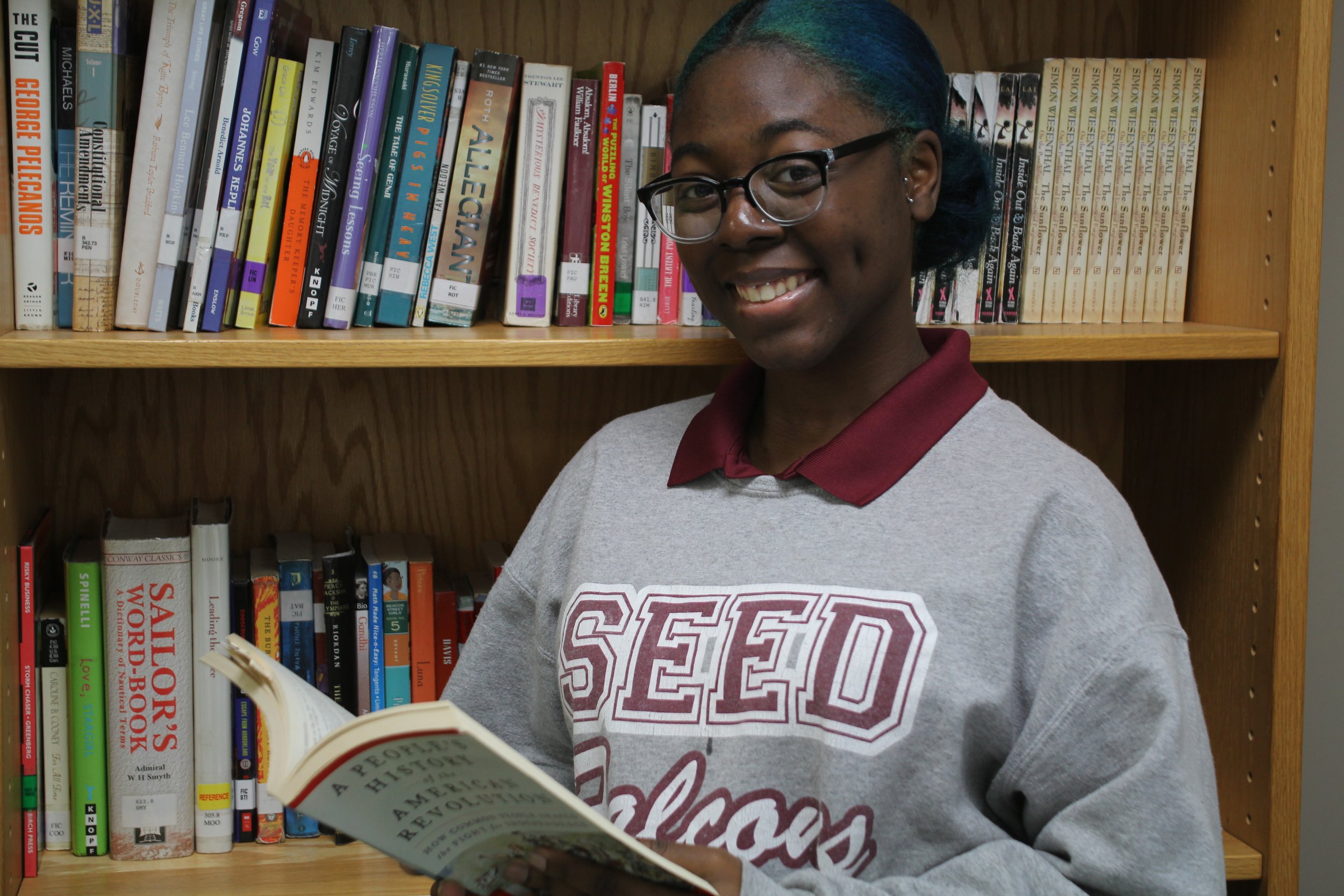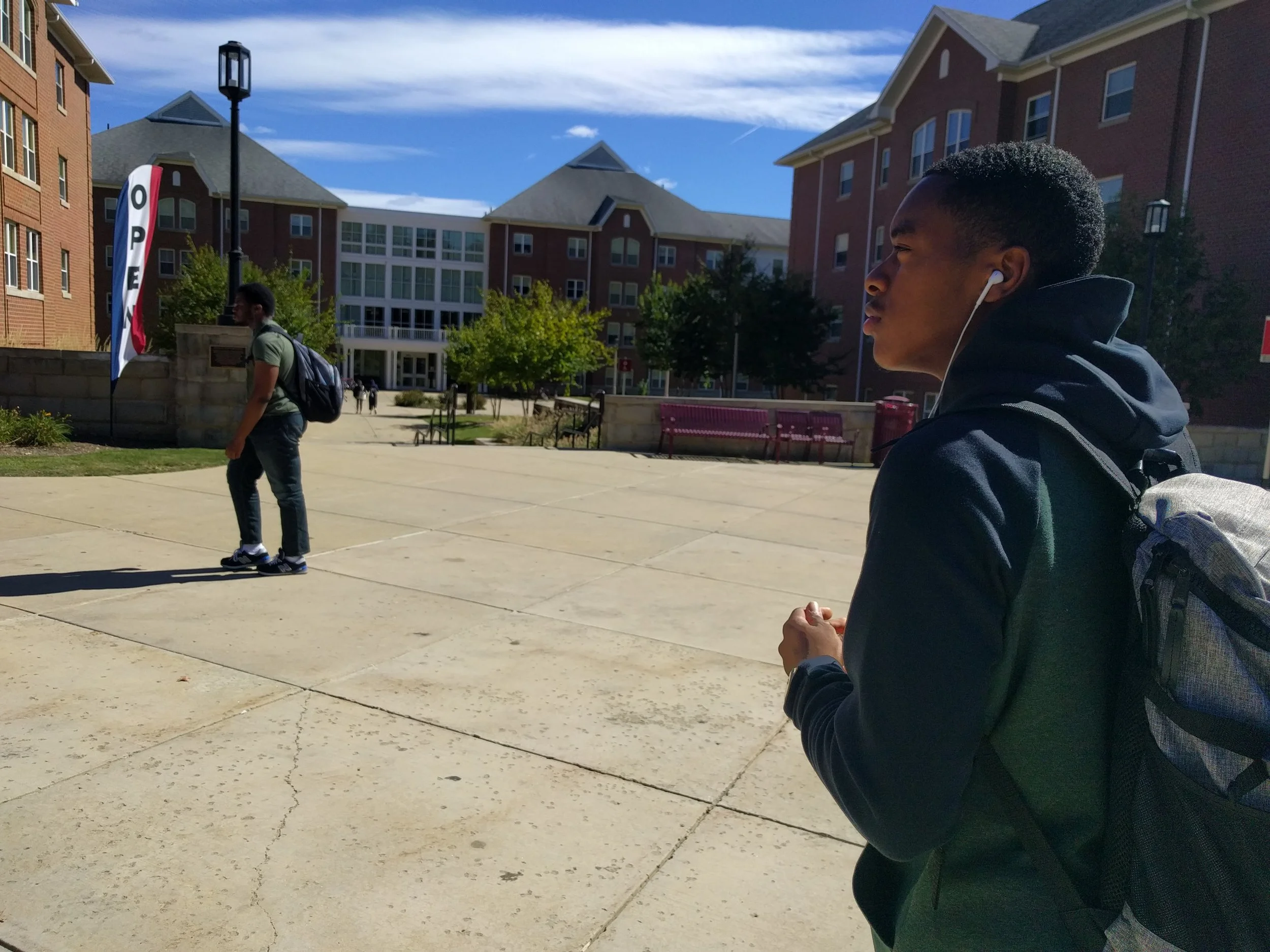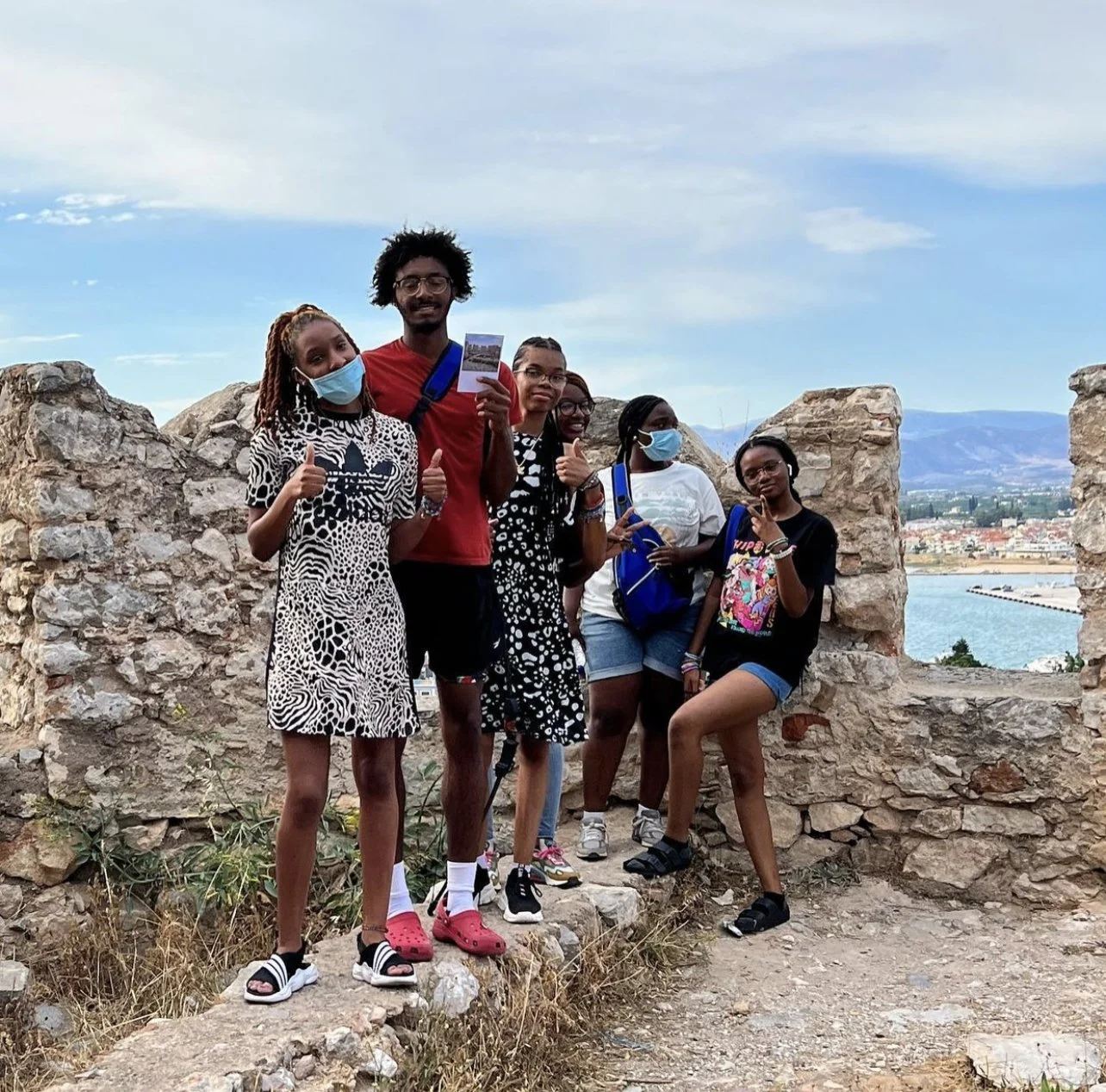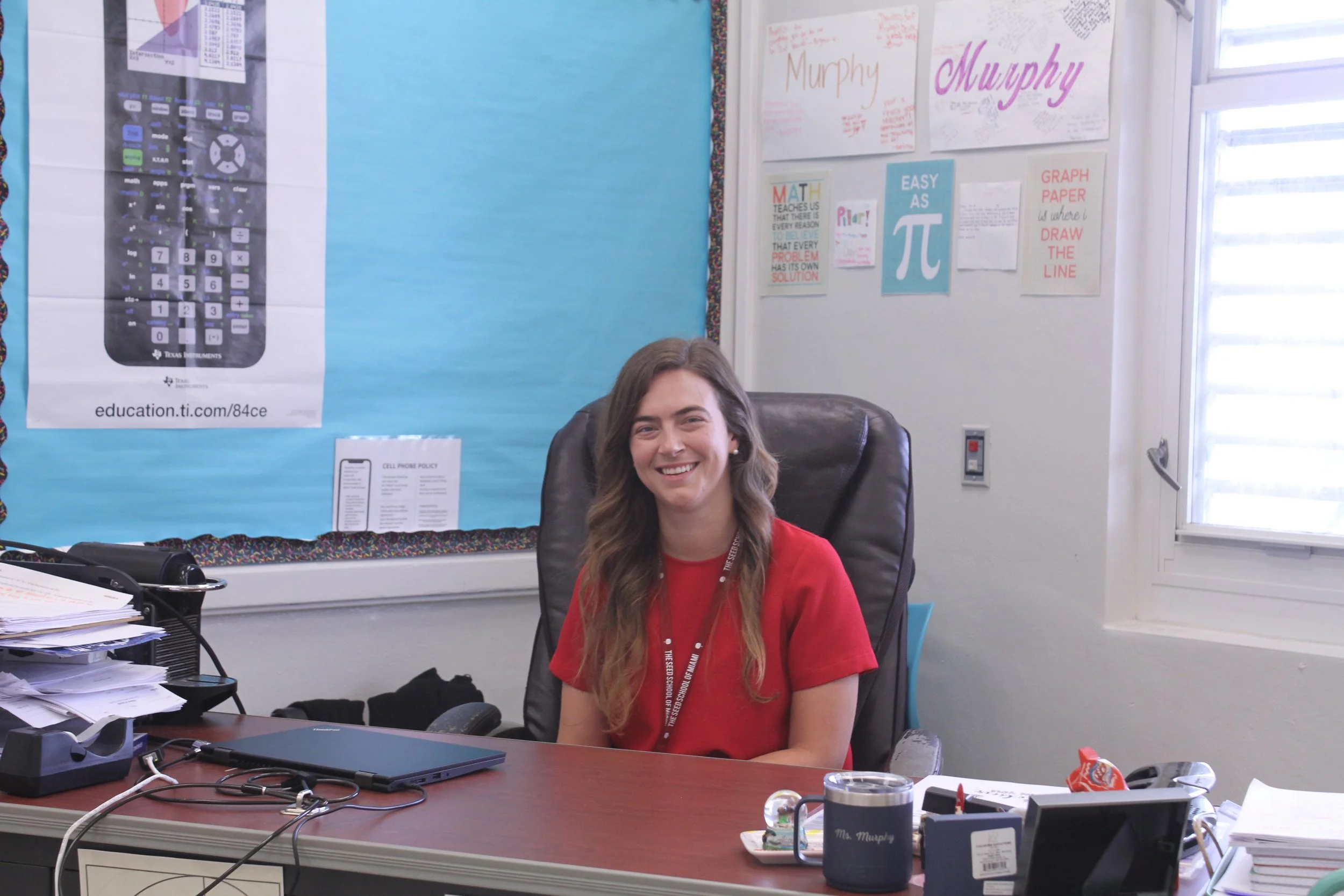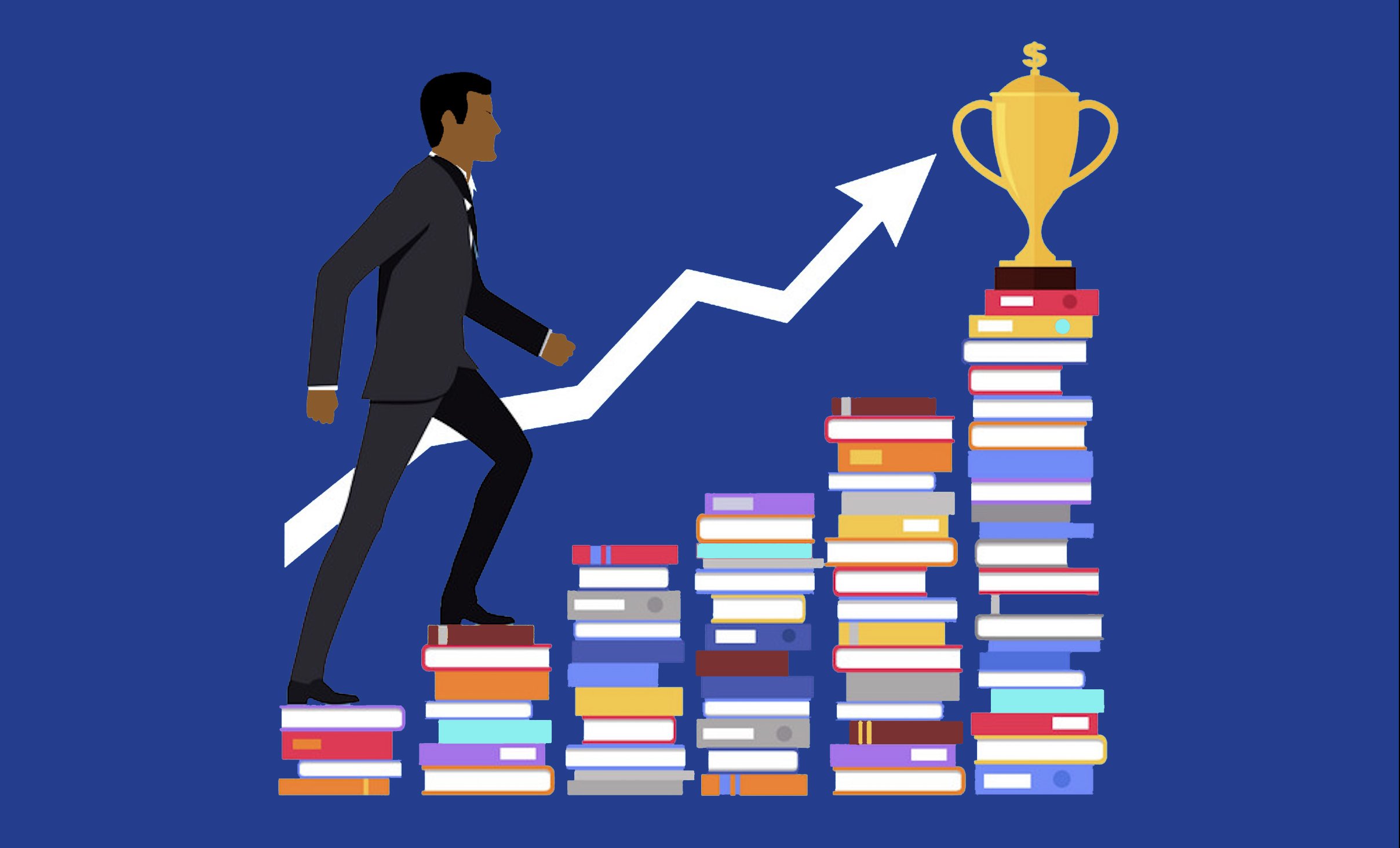“SEED is my village,” says Michael Da’Costa, the proud mother of five grown children, all of whom graduated from SEED DC and from college.
When Ms. Da’Costa was first introduced to SEED DC, she was looking for a school that would offer her children a safe place to go as well as a positive environment in which to learn and grow. As a single working mother of five children, she was concerned with her children’s safety as they traveled to and from school as well as what they were exposed to while at school. SEED was an answer to her prayers. While it was difficult for the close-knit family to adjust to being apart from each other during the week, Ms. Da’Costa had faith that SEED was providing her children with a safe learning environment, and that knowledge brought her great peace. “God blessed our family with SEED.” She prayed about her decision to send her children to SEED and felt that God put all the pieces in place and guided them to this opportunity.
As her first SEED student, Alex, settled into the new structure and rigor of SEED DC, Ms. Da’Costa encouraged her daughter to persevere through homesickness and the trials of adjusting to a new school environment. As each of her other children became old enough to attend SEED, Ms. Da’Costa was happy that they could be in the same place together. She picked SEED not only for the safety it offered, but also for the opportunity for her children to develop independence. Once they were at SEED, they were able to shine and make the most of their experience. Ms. Da’Costa liked that her children learned to strive and became excited to learn. They became motivated to excel at SEED, which was quite a transformation from their early educational experience and the more challenging early days they experienced as they adjusted to SEED. “They wouldn’t have made it at a regular school, given the kinds of things that were happening. They have made great accomplishments because of SEED.”
Ms. Da’Costa credits the teachers and staff at SEED for the strong mentoring relationships her children experienced. Since their father was not a strong presence in their lives, it meant a lot to Ms. Da’Costa that her sons had caring male mentors who could support them as they grew and matured and who could share insights with her about parenting teen boys. In addition, her children were able to experience their city, sampling local restaurants and trying new things. When they are together, her children reflect on their stories and experiences from their time at SEED. They still want to stay in touch with mentors, teachers, and staff from SEED, seeking them out when they return home. Those relationships also inspire her children to be involved with SEED in order to provide support to the next generation of SEED students, further building the SEED village that the Da’Costa’s and all other SEED families belong to.
Not only did her children get to explore their city, but they were able to explore the world. “Their dreams became big once they went to SEED,” Ms. Da’Costa said. “They could visualize doing certain things around the world and then go accomplish them.” Even though she has never been on an airplane, Ms. Da’Costa secured passports for all of her children so they could travel. Since graduating from college, one of her sons, Dakoda, is now working in IT in Austin, Texas, and her youngest daughter, Dakara, lives with her husband on an Air Force base in Italy. Her children are encouraging her to fly—she has motivation to give it a try to go see where her children are living now! They want to broaden her world in the way that she helped broaden theirs, giving them the wings to fly by sending them to SEED.
When Ms. Da’Costa reflected on her goals for her children, she said wanted them to go to school and promised them she would find a way for them to go to college afterwards but wasn’t sure how to accomplish that goal. With the support of SEED and their college counselors, teachers, and mentors, they were able to explore the best fit for each of her children as well as to access the financial support to fund their college experiences, helping Ms. Da’Costa make good on the promise she made to her children.
Ms. Da’Costa and her children made a commitment to their SEED experience, and SEED has continued their commitment to the Da’Costa family—and the hundreds of others who have gone to SEED—well beyond their graduation from high school. Ms. Da’Costa summed that connection up by saying, “It’s just like family.”

